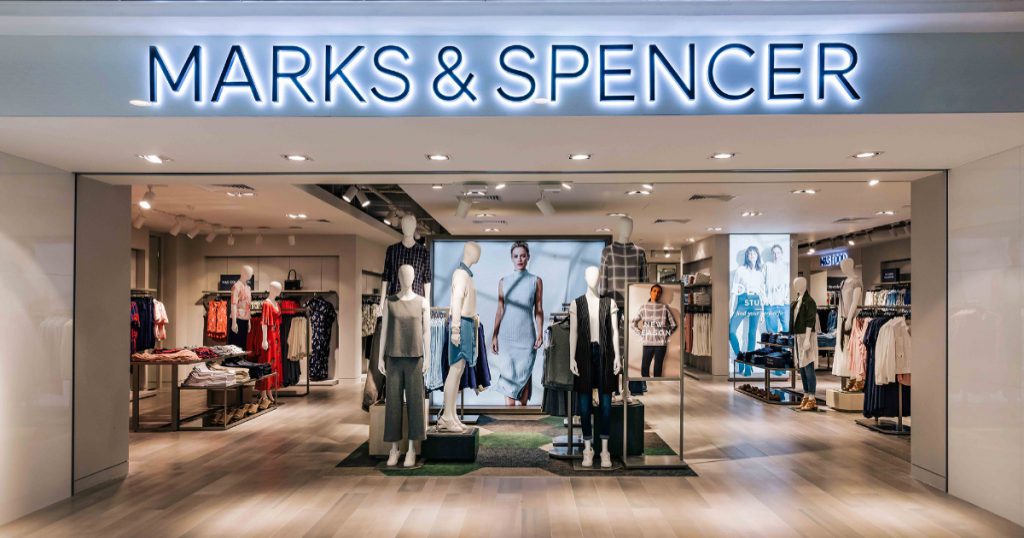About two weeks ago (October 30), departmental store Robinsons announced that it is making its exit from Singapore for good, following losses in recent years.
The 162-year-old department store, one of Singapore’s oldest, said that it has started a liquidation process of its remaining stores due to weak demand stemming from the Covid-19 pandemic.
It had closed its outlet at Jem mall in Jurong earlier in August, while its last two stores at The Heeren and Raffles City Shopping Centre remain open for closing sales.
In contrast, its sister brand Marks & Spencer recently unveiled a new pop-up store at Waterway Point mall.
For a long time, Singapore retailers have been facing headwinds on multiple fronts, including high operating costs and competition from online shopping.
This sparked Singaporeans to question the survivability of departmental stores in Singapore.
From John Little To Robinsons
Robinsons and Marks & Spencer are both owned by Dubai-based conglomerate Al-Futtaim Group.
It also carries brands such as Zara, Massimo Dutti, Bebe, Bershka, Lacoste, Mango and Ted Baker in its portfolio.

It also used to manage departmental store chain John Little, which closed all its stores in Singapore by 2016, after 174 years in operation. The John Little chain was acquired by Robinsons in 1955.
The decision to shutter its John Little outlets was made “after evaluating the relevancy and sustainability of the John Little brick-and-mortar business”.
In its heyday in the early 2000s, John Little had seven branches, including its flagship store at Specialists’ Shopping Centre, which closed after more than 20 years in 2007.

Four years later, Robinsons also announced that it will be folding its last two outlets at The Heeren and Raffles City Shopping Centre.
According to The Business Times, the department store has been raking in at least six years of losses amid declining revenues. Financial records show that the company recorded up to S$54.4 million in losses in 2018.
Its topline also shrunk — it generated S$153.8 million in revenue that same year, a significant decrease from the S$257.3 million it generated in 2014.
At the end of August 2020, Robinsons shuttered its Jem outlet, saying that it was “no longer a sustainable option” to operate multiple large-scale department stores in Singapore.
In line with the shifting retail landscape and Covid-19 pandemic, Robinsons had ramped up its efforts to reach customers online.
In addition to its existing online store, which underwent a revamp, it also launched its products on Lazada’s ‘LazMall’. These plans however, did not help it survive.
Marks & Spencer Records Its First Loss In A Century
On the other hand, Marks & Spencer (M&S) seems unfazed as it opened a new outlet at Waterway Point, bringing its total number outlets here to 11.
The store opened on October 31 and according to The Business Times, it will operate as a “pop-up” for the next six months.

M&S said that it has no intention of closing its “thriving business” in Singapore.
However, the departmental chain seems to be treading on thin ice. They made a profit after tax of S$101,613 in 2018, down from S$2.9 million a year ago.
Last week, it was also reported that M&S made its first loss in almost 100 years as a result of the pandemic.
It recorded a pre-tax loss of £87.6 million (S$156.7 million) in the six months to 26 September. The company lost £71.6 million (S$128.2 million) after tax and revenue fell 16 per cent to £4 billion (S$7.1 billion).
With such heavy losses, it does not seem viable for them to open a new store at this point.
However, this could simply be a tactic to grab more market share. With Robinsons out of the market, Al-Futtaim could see this as a chance to draw Robinsons’ customers to Marks & Spencer, instead to existing chains such as Isetan or BHG.
M&S could use the opportunity to stretch their influence in the market, after living in its sister’s shadow for years.
Seeing how they chose to launch a new “pop up” instead of a full-fledged departmental store, they could be testing the waters to see how this strategy could turn out.
Regardless, M&S is not out of the woods yet as they are currently in the red and may continue to see losses.
Therefore, they may follow in Robinsons’ footsteps and potentially face collapse after consecutive years of losses and the ongoing pressures on physical retailers.
Featured Image Credit: Darren Bloggie
Also Read: These 11 Brands Prove That Retail Is Not Dead With New Outlets In S’pore Despite COVID-19










